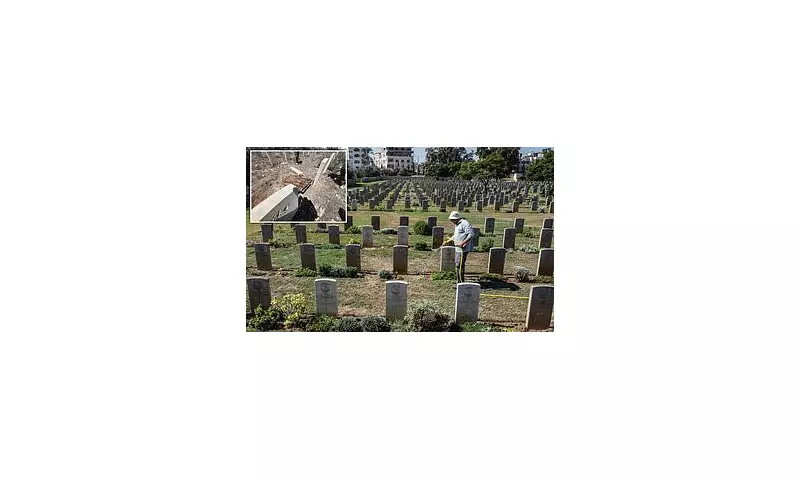
In a controversial military operation that has sparked diplomatic concerns, Israeli forces have targeted an extensive Hamas tunnel network constructed directly beneath a historic British war cemetery in Gaza.
The airstrike, confirmed by the Israel Defence Forces, struck what military officials describe as a major underground command centre used by Hamas militants. The tunnel system was reportedly built underneath the Commonwealth War Graves Commission cemetery, which contains the remains of British and Commonwealth soldiers who fought in the First World War.
Sacred Ground Compromised
The cemetery, maintained by the Commonwealth War Graves Commission, serves as the final resting place for soldiers who died during the British campaign against the Ottoman Empire in 1917. Military historians consider the site sacred ground, making the discovery of militant infrastructure beneath it particularly alarming.
"Hamas has consistently shown disregard for civilian life and historical sites," an IDF spokesperson stated. "Their decision to build military infrastructure beneath a protected cemetery demonstrates their cynical exploitation of sensitive locations."
Diplomatic Fallout Emerges
The incident has prompted serious concerns within British diplomatic circles. Officials from the Foreign Office are seeking urgent clarification from Israeli authorities about the extent of damage to the cemetery and the intelligence that led to the strike.
A spokesperson for the Commonwealth War Graves Commission expressed deep concern, noting that while they cannot access the site due to ongoing hostilities, they take any damage to their cemeteries "extremely seriously."
Pattern of Tunnel Construction
This is not the first instance where Hamas has been accused of building military infrastructure beneath protected sites. Previous conflicts have revealed tunnels beneath hospitals, schools, and residential buildings, though the use of a Commonwealth war cemetery represents a new escalation in tactics.
Military analysts suggest the location was chosen precisely because of its protected status, calculating that Israeli forces would hesitate to strike such a sensitive historical site.
The incident raises difficult questions about balancing military necessity with the protection of cultural and historical heritage in conflict zones. As operations continue in Gaza, both military and diplomatic officials face increasing pressure to address the complex ethical challenges presented by urban warfare in historically significant areas.





